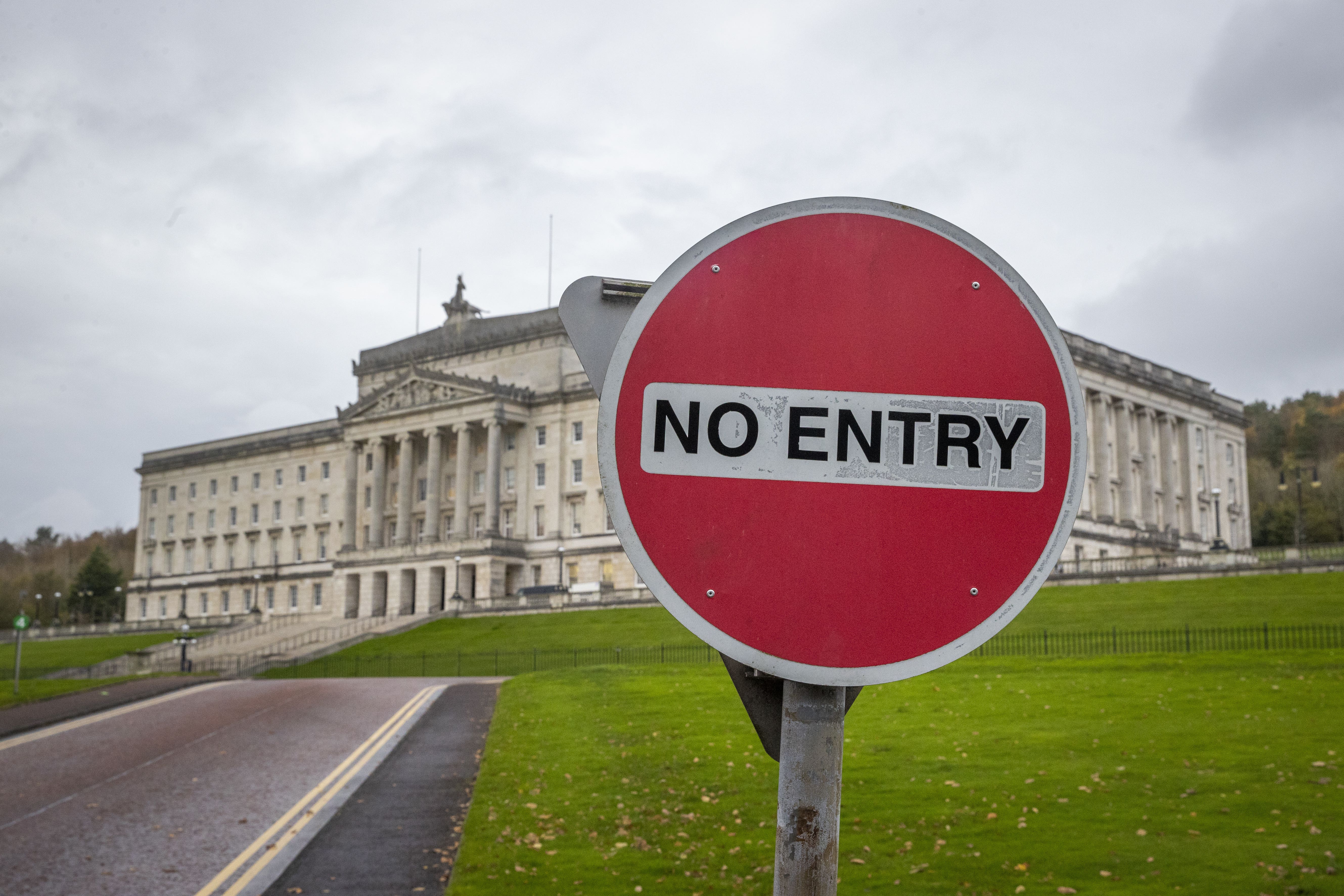Lack of executive compounding Stormont’s budgetary problems – watchdog
The Northern Ireland Fiscal Council said departments were overspending significantly amid weak budgetary controls.

Your support helps us to tell the story
From reproductive rights to climate change to Big Tech, The Independent is on the ground when the story is developing. Whether it's investigating the financials of Elon Musk's pro-Trump PAC or producing our latest documentary, 'The A Word', which shines a light on the American women fighting for reproductive rights, we know how important it is to parse out the facts from the messaging.
At such a critical moment in US history, we need reporters on the ground. Your donation allows us to keep sending journalists to speak to both sides of the story.
The Independent is trusted by Americans across the entire political spectrum. And unlike many other quality news outlets, we choose not to lock Americans out of our reporting and analysis with paywalls. We believe quality journalism should be available to everyone, paid for by those who can afford it.
Your support makes all the difference.Stormont departments are overspending significantly amid weak budgetary controls due to the absence of a ministerial executive, a fiscal watchdog has warned.
The Northern Ireland Fiscal Council, an independent body that scrutinises how public money is spent in the region, said the “unavoidable impact” of inflation and pay pressures was being compounded by the powersharing vacuum.
The latest Department of Finance data indicates that departments are set to overspend by £650 million (almost 5%) on the day-to-day costs of running public services and by £187 million (over 10%) on capital investment projects.
The council warned that, as spending rules stand, the overspend will have to be clawed back by the Treasury when it allocates its block grant to Northern Ireland in the next financial year.
With no ministers currently in place due to the political deadlock over the Northern Ireland Protocol, Secretary of State Chris Heaton-Harris is set to step in to pass a budget for Stormont at Westminster.
Mr Heaton-Harris will have to make several decisions that would have been taken by devolved ministers if an executive was in place.
Those include deciding which departments to prioritise with funding, whether to implement the recommendations of the UK pay review bodies and whether to borrow £140 million for capital spending that was included in a draft budget drawn up by former finance minister Conor Murphy last year.
The council said some of the pressures being experienced in Northern Ireland were also at play across the devolved regions and within central government.
Those include unexpectedly strong upward pressure on inflation and pay settlements.
However, the watchdog said the lack of executive in Belfast was “compounding an already difficult situation”.
It highlighted that the powersharing impasse means a lack of agreed budget; no in-year reallocations through monitoring rounds; no ministers to take decisions on spending that exceed allocations; and no Assembly oversight committees to scrutinise Stormont’s fiscal management.
Sir Robert Chote, chair of the council, said: “Higher inflation and upward pressure on public sector pay are creating challenges for public services right across the UK.
“But the absence of a functioning Executive and the inability of the previous one to agree a Budget are making it even harder to manage these pressures here.
“As well as confronting the difficult near-term decisions, Stormont and Whitehall should think carefully about how best to manage similar situations in future before they occur again.”
Responding to the report, Mr Heaton-Harris said: “Sustainable and stable public finances are the foundation to effective and efficient public services – so the findings in this report, alongside the budget overspend reports that have already been coming to light over recent weeks, are alarming.
“Locally accountable leadership is urgently required to ensure that Northern Ireland can get its finances in order and protect on the ongoing delivery of vital frontline services such as healthcare and education, as well as cost-of-living support.
“It remains my priority therefore to work with the parties to restore the devolved institutions.
“However, the UK Government will not stand by and let the people of Northern Ireland suffer from this lack of locally accountable leadership.
“In the absence of an executive, my department will continue to engage with the Northern Ireland Civil Service to consider the information in this report and work through the next steps needed on the NI Budget.”